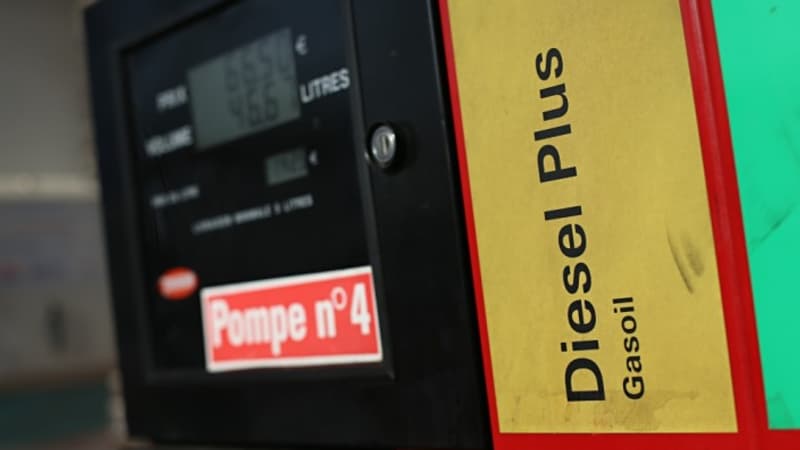The end of the sales could be even more brutal than expected. Elisabeth Borne and TotalEnergies have announced that their discounts on pumps of 30 and 20 cents respectively will be extended until mid-November before being reduced to 10 cents until the end of the year. Later, Bruno Le Maire indicated that targeted devices would take care of people forced to use their car.
But before we get there, a blunt measure will have gone into effect: the European Union’s embargo on Russian oil. It will start on December 5 and will be followed by a similar measure on diesel two months later. In 2021, France imported almost 9% of its crude oil and 30% of its diesel from Russia according to figures from the Petroleum Professional Committee. Percentages that suggest a sharp rise in fuel prices and more specifically diesel in the coming months with the end of these imports.
A redistribution of commercial circuits
Therefore, consumers must not run out of precious fuel. “In concrete terms, this preparation consists in particular of identifying alternative supply solutions”, continues Olivier Gantois.
Among these new relays, North America and in particular the United States but also the Indian mega-refineries or the Middle East where certain countries have refineries especially dedicated to export. These last two geographical areas could be highly sought after for importing diesel due to the shorter delivery times due to their geographical proximity. One source, quoted by Reuters, estimates that Europe could import around three million tonnes of diesel in November, including two million from the Middle East. This geographical area is already appreciated by TotalEnergies, for example.
According to Olivier Gantois, there could be a “communicating vessel” effect at the international level with the signing of new annual contracts since it is no longer possible to contract with Russia from June 4. TotalEnergies thus renounced any trading operations on the (short-term) spot markets in relation to Russian oil or oil products the day after the invasion of Ukraine. On the other hand, the group maintains forward purchase contracts “whose longest maturities are December 31, 2022.” “These forward contracts are essentially intended to cover the supply of the Leuna refinery located in eastern Germany and supplied by the Druzhba pipeline from Russia,” the company details. They also refer to the supply of diesel from Europe, which is deficient in this product (around 12% of imports of Russian diesel in Europe in 2021).
The “hope” of a recession
However, the practice has tended to be different since the beginning of the war with higher oil prices outside of Russia. This has also been seen in recent weeks when France was forced to urgently import fuel to deal with the social movement in refineries and warehouses that prevented the supply of service stations.
For the director of the Center for Geopolitics of Energy and Raw Materials (CGEMP), only a collapse in world demand linked to a recession could prevent a rebound in prices. “In general, in 2023, what international organizations like the IMF tell us is that we are heading towards a less dynamic period in economic terms, perhaps even a recession, continues the researcher. In a recession, globally, prices can fall. We must remember what happened at the beginning of the Covid crisis, the price of a barrel of oil had fallen almost to 0. With TF1 last week, he insisted in particular on the decisive role of China, whose demand is still restricted by politics. healthcare, in the orientation of the international trend.
A plateau virtually reached?
Have diesel prices already peaked? In any case, this is the idea raised by Olivier Gantois. The president of the UFIP recalls the recent increases that have already brought the price of diesel to high levels, first as a result of the invasion of Ukraine, then more recently because of the strikes in France. But the entry into force of the embargo on Russian petroleum products is concomitant with the intended end of “discounts” at the pump.
Olivier Gantois thus reminds us that rebates play a disguising role in the true value of diesel. “The increase in prices is not going to go away, but there is no reason for it to increase more with respect to crude and we run the risk of staying in this high plateau,” he believes. Last week, diesel prices at the pump had risen 12 cents. TotalEnergies has already announced its commitment to “reactively affect variations in the price of raw materials, upwards and downwards, with total transparency”.
For his part, Patrice Geoffron foresees the worst and does not hesitate to use the expression “mini oil shock”, which would not be limited only to diesel, to summarize his forecasts.
“At this time, the price of oil could increase considerably, above 2 euros per litre. The discounts will have disappeared, the price of oil will have increased. This is a first scenario, the price per liter could even reach 2.50 euros. but that’s for the tallest, warns Patrice Geoffron. Instead, we can imagine a sinking global dynamic. At that time, the price of a barrel could fall below 70 dollars with a price at the pump of 1.60 euros. This gives a range that is very wide.”
Source: BFM TV


